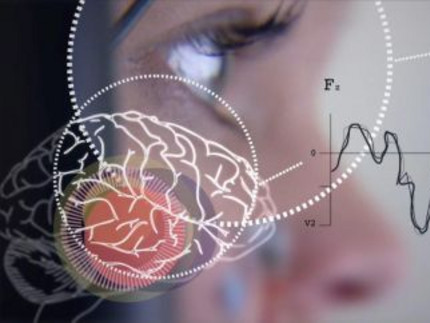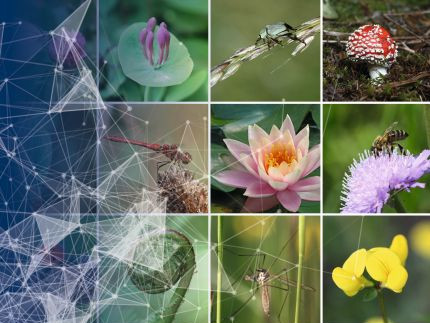Research Focuses at the University of Potsdam
The University's Research Focus Cognitive Sciences is an interdisciplinary research association that investigates the complex cognitive performance of humans and artificial cognitive systems from both empirical and theoretical perspectives. It brings together researchers from the Faculties of Human Sciences, Digital Engineering, Sciences, and Arts, and from two external institutions (German Institute of Human Nutrition and HMU Health and Medical University Potsdam). Topics of collaborative projects include basic research on the structure, dynamics, and development of language, visual perception, attention, motor skills and cognition in children, adults, and the elderly, as well as on the neural and social aspects of these abilities. Corpus-based, experimental or clinical methods and computational cognitive modeling procedures are used. Researchers have access to central laboratory pools with a wide range of experimental technologies. These include reaction time measurement, ultrasound and electromagnetic articulography, a swallowing lab, EEG, EMG, ECG, NIRS, TMS, eye trackers, balance and force measurement platforms, 2D and 3D motion analysis systems, a baby lab, and several motor skills labs.
Spokesperson: Prof. Dr. Birgit Elsner
Duration: Jan. 1, 2025 - Dec. 31, 2029
The University's Research Focus Evolutionary Systems Biology is a research network that uses experimental approaches, bioinformatics and modelling to address the question of how new traits arise in evolution through changes in the networks at the various levels of biological organisation.
The growth and development of organisms is based on the interplay of countless components in molecular and cellular networks, e.g. at the levels of gene activation, metabolism and cell behaviour. In the course of evolution, new traits have evolved by changing the structure of these networks, their components or the dynamics of their interactions. The main goal of the participating researchers from the Institute of Biochemistry and Biology is to understand how these changes came about and how they translate into new traits, but also whether the structure of the molecular and cellular networks favours certain evolutionary changes but makes others more difficult. In order to answer these questions, the participants use various molecular and microscopic high-throughput methods and mathematical modelling of biological systems.
Spokesperson: Prof. Dr. Michael Lenhard
Duration: Jan. 1, 2025 - Dec. 31, 2029
EDUCATION FOR THE FUTURE
In this interdisciplinary research focus, we investigate the role the digital living environment of children and adolescents plays in the development of competences for responsible, autonomous and self-reflective social participation in a world characterized by globalization and transformation processes. The aim is firstly to contribute to a better understanding of the complex interactions of growing up in a culture of digitalization on the one hand and the influence and development of individual characteristics of children and adolescents (especially social background, democracy-oriented values and norms, mental health) on the other by means of an empirical-quantitative research approach. Secondly, following a use-inspired research strategy, evidence-based educational measures are to be developed on this basis to strengthen resilience in dealing with an uncertain world characterized by disruptions. On the one hand, these measures should exploit the potential of digital offerings, e. g. for the design of personalized learning environments that enable fair access to educational opportunities for everybody. On the other hand, they are intended to mitigate the possible negative effects of growing up in a digital world or help prevent them from developing. The research focus works in an interdisciplinary way including researchers and their perspectives from educational science, psychology, primary and inclusive education as well as sociology.
Spokesperson: Prof. Dr. Katharina Scheiter
Duration: Jan. 1, 2025 - Jun. 30, 2028
The increasing loss of biodiversity and the degradation of ecosystems, along with their essential services, are among the most pressing challenges of our time, requiring immediate action. A deep understanding of the complex cause-effect relationships of natural processes and human activities is crucial for deriving sustainable strategies for action and policy recommendations. However, our understanding of these processes is still limited, as prevailing concepts in ecology, environmental and climate sciences often fail to consider the underlying complexity of these systems.
The aim of the university research focus ‘Individual-based global change ecology’ is to advance research and foster collaboration on transient ecological dynamics, focusing on the underlying mechanisms and causal links between biodiversity, global change, and human well-being. This initiative emphasizes individual organisms as the fundamental agents of change. To develop global change ecology into a predictive science, it is essential to understand how individual-level variations are related to emergent properties at the level of species communities and ecosystems, and how these relationships are influenced by anthropogenic pressures.
Sprecherin: Prof. Dr. Jana Eccard
Duration: Jan. 1, 2025 - Jun. 30, 2028
Sustainable materials are a crucial building block for mastering the challenges of the 21st century with the aim of fulfilling the needs of current generations while at the same time preserving the development opportunities of future generations. Sustainable materials are key to conserving resources, utilising energy specifically for selective chemical processes and enabling closed-loop material circles. The university research focus Sustainable Materials Design essentially pursues two goals: (i) to improve the understanding of fundamental processes of light-matter interactions that will enable the sustainability of materials and their production in the future, and (ii) the energy-efficient and environmentally friendly production and sustainable use of functional materials. To this end, light-matter interactions are investigated using state-of-the-art spectroscopic and microscopic methods in order to gain a fundamental understanding of processes related to sustainability. Furthermore, new approaches to sustainable materials, e.g. using light as an energy source, through biosynthetic or bio-inspired methods, or using renewable raw materials, are being researched.
Spokesperson: Prof. Dr. Ilko Bald
Duration: Jan. 1, 2025 - Dec. 31, 2029



